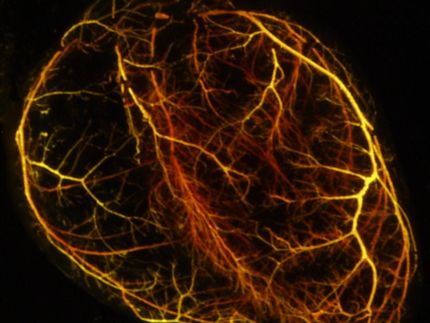Cardio3 BioSciences Announces Results of the C-Cure Phase II Clinical Trial
Positive Results for Innovative Heart-Specified Stem Cell Therapy Underscores Generalized Therapeutic Benefit in Heart Failure
Advertisement
Cardio3 BioSciences presented detailed data from the Phase II clinical trial of C3BS-CQR-1 (C-Cure®), its novel stem cell therapy for ischemic cardiomyopathy, at the 60th annual American College of Cardiology in New Orleans, USA.
The data were presented by Dr. Jozef Bartunek, Associate Director of the Cardiovascular Center in Aalst, Belgium and Co-Principal Investigator of the C3BS-CQR-1 (C-Cure) trial. The trial demonstrates that heart failure patients improved heart function and exercise capacity at 6 months following treatment of C-Cure, an innovative and proprietary stem cell therapy based on the Company’s “Cardiopoiesis” technology.
The Cardiopoiesis platform is based on fundamental research conducted at Mayo Clinic and is designed to drive the differentiation of adult bone marrow-derived stem cells into cardiac progenitor cells which have the potential to promote heart regeneration when re-injected into the heart of patients suffering from ischemic heart failure.
45 patients with heart failure secondary to ischemic heart disease were recruited in Belgium and Serbia, and randomized to optimal medical care or optimal medical care plus C-Cure treatment. Demographic and clinical baseline data were similar between 24 controls and 21 patients treated with C-Cure. The study showed that delivery of C-Cure is feasible without peri-procedural complications. No evidence of cell-induced systemic toxicity or pro-arrhythmogenicity was observed.
Cardiac structural and functional parameters, assessed by echocardiography at six months versus baseline showed the benefit of C-Cure treatment. On average, left ventricular ejection fraction (LVEF) was significantly augmented over baseline in the C-Cure versus control cohort (5.2±0.6% versus 1±0.7%, p<0.01), translating into a 18.1±2.3% relative increase in systolic function afforded by cell therapy. Reduction of end-systolic volume was 3-times larger in the C-Cure group compared to the control group (from 171±9 to 150±9mL, and from 167±8 to 159±8mL, p=0.01, respectively).
In contrast to the control cohort, which displayed inter-individual variance, C-Cure treatment invariably led to a pattern of improved left ventricular function in all individuals at 6 months follow-up.
The beneficial effects on cardiac structure and function in the C-Cure group translated into meaningful improved fitness. The 6-min walk test, an index of overall performance, increased from 396±26 at baseline to 449±35 m at six months in C-Cure (+52±19 m) patients while it decreased from 412±19 to 391±25 m (-21±14 m) in the control group between the same time points (p<0.01). To summarize, at 6 months post-therapy, C-Cure treated heart failure patients walked 73 meters more than patients that received optimal standard of care.
Dr. Christian Homsy, CEO of Cardio3 BioSciences, said: “Heart failure affects 117 million people and cannot be cured today as current therapies only reduce the severity of disease symptoms. Regenerative therapies, such as C-Cure, may offer new hope to patients who currently have limited choices and potentially avoid the need for heart transplantation. The positive outcome of this study reiterates our belief that C-Cure can make a real difference to patients suffering from heart failure. Indeed, we are currently planning the next stages of C-Cure development and are committed to taking the steps needed to successfully bring this new and important treatment to patients. With C-Cure, we aim to become the first company with an approved regenerative product for ischemic heart failure.”






















































